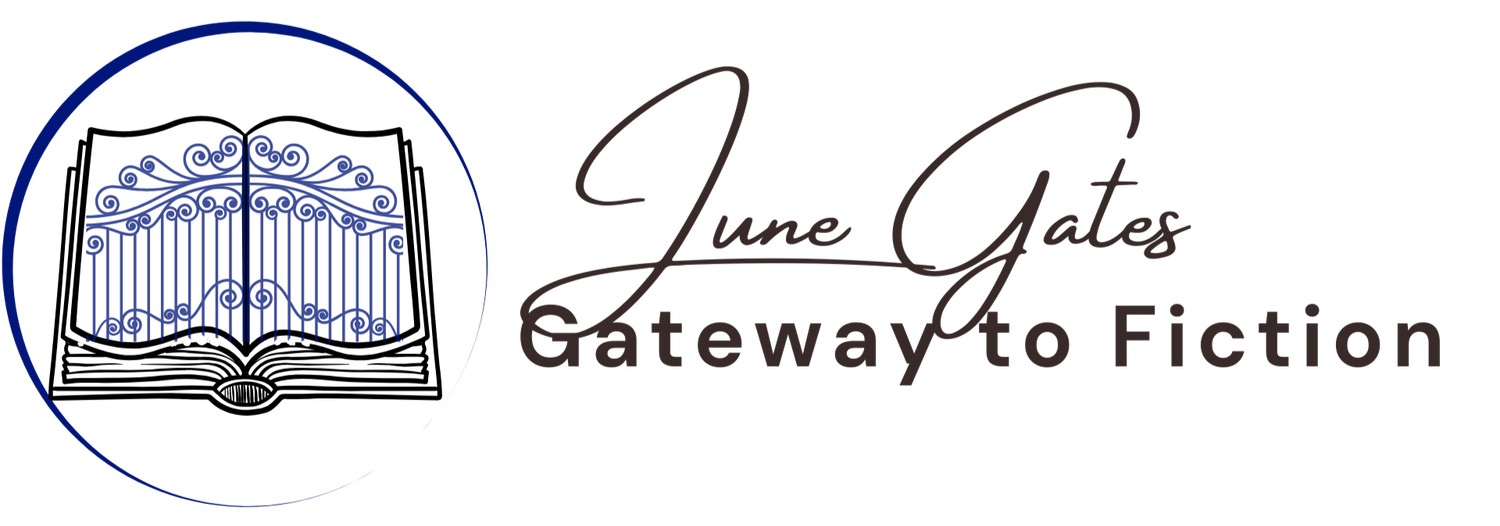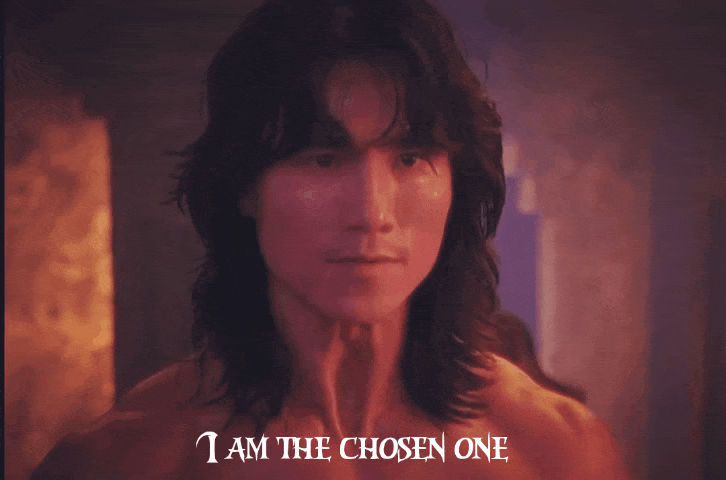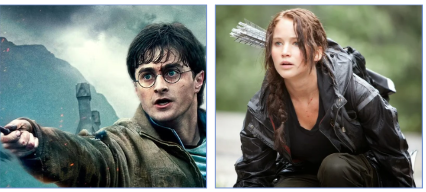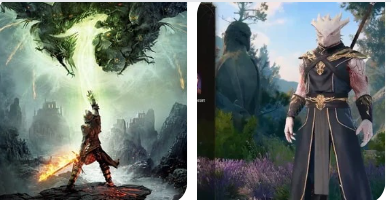The Hero’s Journey: The Chosen One vs. The One Who Chooses
At the heart of nearly every story lies a character we root for. We become invested in their struggles, their victories, and their choices along the way. More than the destination, it’s how the journey shapes them and how their actions ripple outward that makes their story memorable.
As I’ve been writing my own stories, I’ve found myself reflecting on the characters who shaped my view of what makes an intriguing hero. One ongoing debate is which carries more weight: a hero who is chosen by destiny, or one who chooses to step into the fire on their own.
Here, I take a look at both, exploring examples across books, films, and games to see which kind of hero resonates more deeply.
Books: Destiny Meets Reluctance
Harry Potter seems to be the quintessential “Chosen One.” From a young age, his destiny seems inevitable; his life and fate are bound to Voldemort through prophecy. But in truth, it’s Voldemort who chose Harry, inadvertently creating his own downfall in the process.
Yet, Harry doesn’t fully embody the traditional “Chosen One” archetype. What makes him compelling isn’t that he’s special. He’s ordinary, average even. He’s not blessed with immense magical talent (Parseltongue aside), nor is he especially charismatic. His strength lies instead in loyalty, determination, and his moral compass.
Katniss Everdeen, by contrast, seems to choose her fate. When she volunteers as tribute to save her sister during the Reaping, her selflessness thrusts her into a world of manipulation, spectacle, and survival. But that one decision traps her in a series of events beyond her control, forcing her to navigate the influence of those in power.
Across the series, Katniss’ survival doesn’t come from destiny, but from necessity. Her skills were forged from hunger, fear, and love for her family. As she becomes the reluctant face of rebellion, she loses some of her autonomy and embodies a different kind of a chosen one who is more symbol than person to the districts of Panem.
Like Harry, she’d rather live quietly, but circumstances force her into the spotlight. Perhaps that’s what makes them both so relatable: they don’t seek greatness, but rise to it anyway even when they struggle with the consequences.
Movies: When Fate Feels Forced
Luke Skywalker is a name almost synonymous with being a hero (just don’t ask any Trekkies). Coming from humble beginnings as a moisture farmer on Tatooine, Luke dreams of adventure and something greater beyond his desert home. His journey begins almost by chance when he encounters a stubborn droid, a desperate message, and a decision to follow his curiosity.
I would argue that Luke, at least in A New Hope, is a hero who chooses to get involved. He’s desperate to matter, to prove himself, and when the opportunity arises to rescue Princess Leia, he jumps at it. While he’s a capable pilot and shows potential with the Force, Luke isn’t portrayed as a prodigy, bus as a young man figuring things out as he goes, succeeding as much through stubborn optimism as through skill.
As the original trilogy progresses, Luke gradually evolves into a more traditional “Chosen One.” He discovers the truth of his family line, the depth of his connection to the Force, and the heavy destiny resting on his shoulders. Yet even with all this, his defining strength remains the same: his choice to believe in others, to fight for what’s right, and to confront his father not out of duty, but compassion.
In contrast, we have Rey from The Force Awakens. Now, I’ll admit upfront that I’m not the biggest fan of the most recent Star Wars trilogy. Personally, I think some stories should be allowed to end on their own terms. I didn’t need to know that Han Solo became an absent husband/father, or that Leia’s son inexplicably turned to the dark side. (Yes, I know there was a whole messy domino effect involving Luke and Kylo, but you can’t convince me that Anakin and Obi-Wan weren’t yelling as Force ghosts the entire time, utterly exasperated. But I digress…)
The problem, for me, lies in how Rey’s arc was handled. She was clearly meant to mirror Luke as a scavenger stranded on a desert planet who gets swept into a galactic war, yet her progression feels oddly effortless. Events happen to Rey rather than because of her choices. She’s a natural pilot and gifted Force user from the start, despite having little time to explore or struggle with those abilities. Her primary conflict becomes one of identity and lineage, who she’s meant to be, rather than the tangible internal or external challenges that once grounded Luke’s story.
Overall, Rey represents the “chosen” archetype stripped of its nuance. When destiny overwhelms agency, it can be harder for the audience to connect.
Video Games: When Choice Defines the Hero
Now, it wouldn’t be a Gateway to Fiction character analysis without referencing Dragon Age or Baldur’s Gate 3 (you may have noticed I’m a fan). One of the most rewarding parts of role-playing games is how they make you responsible for the hero’s journey by giving players the power to shape the story and decide what kind of hero they’ll become.
In most Dragon Age games, players take on the role of “Someone has to take care of this mess. Nobody else is stepping up, so it might as well be me.” (Shoutout to all my Wardens, Hawkes, and Rooks.) Of course players can choose to roleplay with more noble intentions, the ultimate sass, or downright dismissiveness, but the fact remains that you have to choose how to navigate the conflicts ahead.
However, In Dragon Age: Inquisition, the Inquisitor embodies a clear “Chosen One” archetype. You’re the lone survivor of a cataclysm that wipes out the realm’s spiritual leader and countless others, emerging from the chaos with a mysterious power tied to divine intervention. The people hail you as “The Herald of Andraste,” a symbol of faith and leadership, whether you like it or not.
But the brilliance of Inquisition lies in how it complicates that destiny. You can choose your race, background, and beliefs. You might be a devout believer, a skeptic, or a pragmatist using faith as politics. The game doesn’t just hand you destiny; it forces you to interpret what that destiny means.
By contrast, Baldur’s Gate 3 begins with your character Tav being infected with a mind flayer parasite. You’re not chosen. You’re just stuck. The story becomes one of survival, resilience, and reluctant leadership. The tadpole gives you strange powers, yes, but they come with the constant threat of losing yourself. Every victory, every alliance, feels earned because you decide how to fight for your identity.
Fate, Choice, and Why It Matters
So, is there truly a difference between being chosen and choosing?
Even the chosen ones must eventually choose to accept their fate, to act, to grow. And even the ordinary ones who step up out of necessity often find themselves shaped into legends.
What matters most isn’t the prophecy or the power. What matters is the struggle that defines the hero’s humanity. The stories that stay with us are the ones where the hero earns the title, not just inherits it.
Images and clips used under Fair Use for commentary and critique. All rights to characters and visuals belong to their respective copyright holders: J.K. Rowling and Warner Bros. (Harry Potter), Suzanne Collins and Lionsgate (The Hunger Games), Lucasfilm/Disney (Star Wars), Warner Bros. (Mortal Kombat), BioWare/Electronic Arts (Dragon Age), and Larian Studios (Baldur’s Gate 3).




